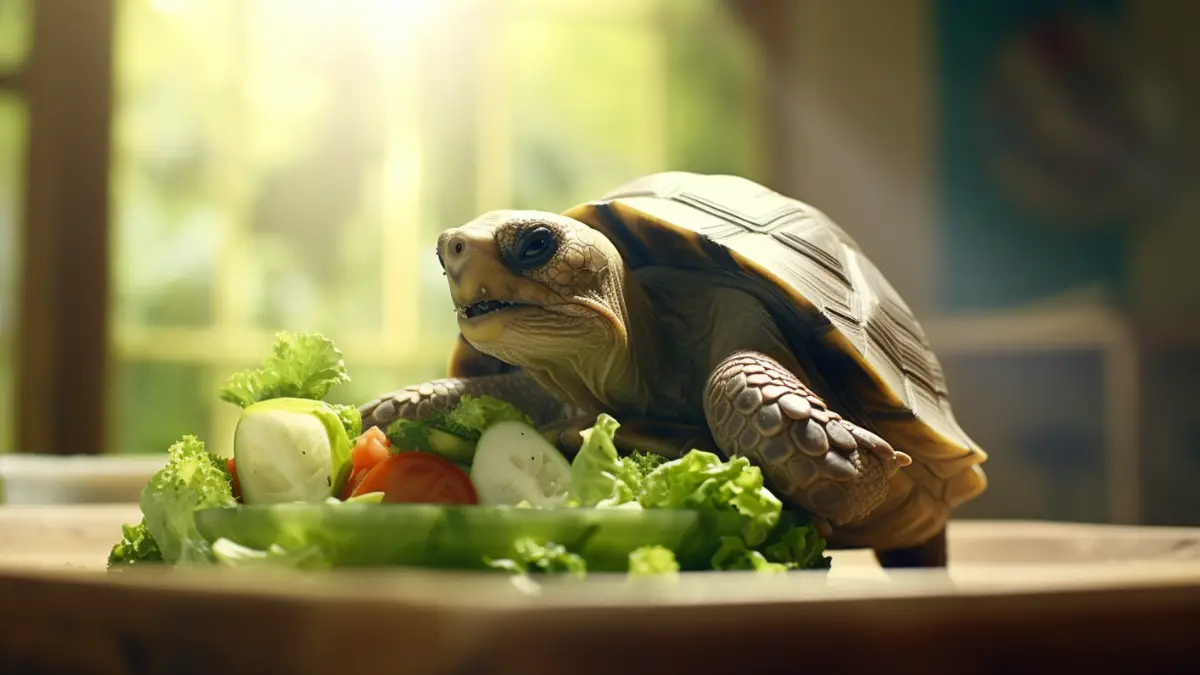Tortoise Not Eating: What Could Be The Reason?
As a tortoise parent, seeing a tortoise not eating is concerning, particularly if it has been happening for a long time. Eating habits are crucial for the health of your tortoise, so it’s essential to figure out what’s going on.
There can be several reasons behind the loss of appetite of your tortoise. It can be environmental factors like a new environment, inappropriate temperature, etc. Medical issues like parasites, dental issues, or issues with behavior like stress and anxiety can also cause this. Even the diet itself can be an issue, as well.
This comprehensive guide offers some much-needed clarity. We will also cover preventive measures to ensure your pet remains in the best of health and provide guidelines on when to consult a veterinarian for expert intervention.
Common Reasons Why A Tortoise Is Not Eating
Contents
As we mentioned before, there are several reasons behind your tortoise not eating. Here, I have broken down the reasons in detail. Have a look, please.
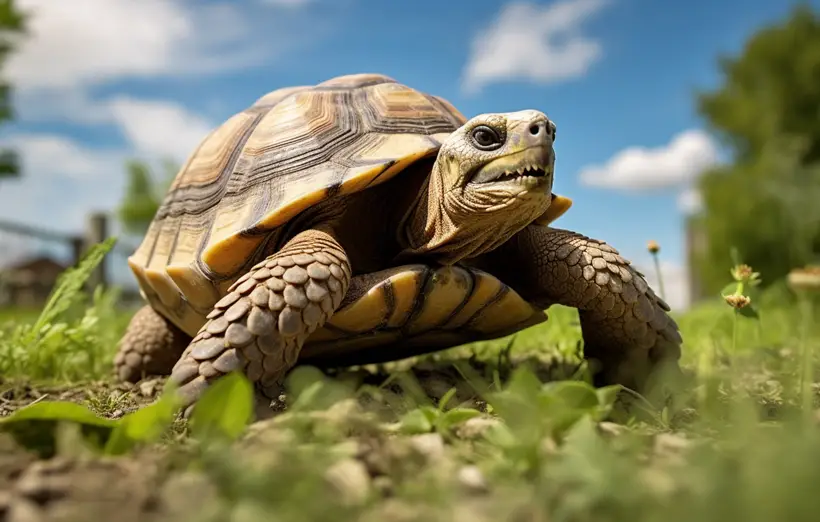
Environmental Factors
Here are some of the environmental factors that may affect your tortoise’s appetite.
Temperature and Humidity
Did you know that a tortoise’s appetite is strongly linked to its environment? If it’s too cold, the metabolism slows down, causing your tortoise to eat less.
Conversely, too much humidity can lead to respiratory issues, affecting appetite. Make sure you’re maintaining the right temperature between 72-80°F (22-27°C) and humidity levels of 50% to 70% in your tortoise’s enclosure.
Peteducate suggests that fluctuations in these environmental factors can significantly affect your pet’s metabolism and, consequently, its eating habits.
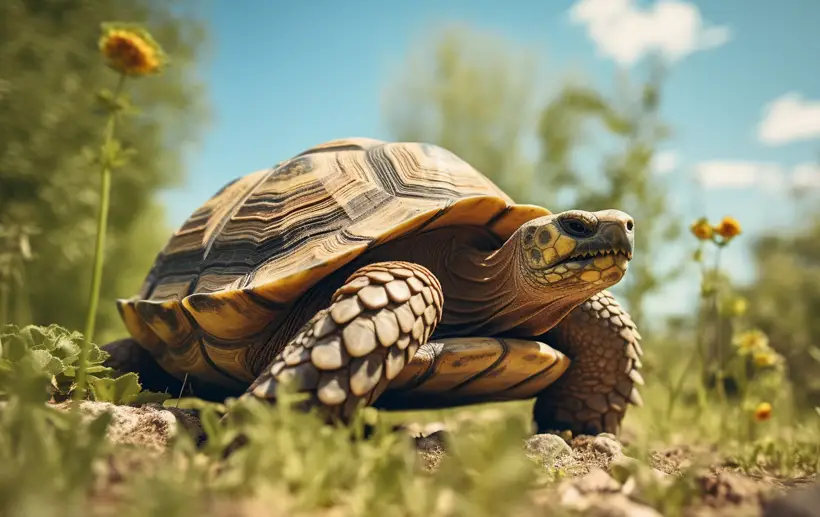
New Environment
If you’ve recently moved or re-arranged your tortoise’s enclosure, this might be affecting its comfort level and, hence, its desire to eat. Try reverting back to the old setup and see if that sparks an interest in food again.
Medical Reasons
Aside from environmental reasons, your pet tortoise may suffer from any underlying medical issues. The issues can include the following.
Parasites or Infections
No one likes to think about their pet being sick, but it’s a possibility. Parasites or bacterial infections could be the culprits. In such cases, immediate medical intervention is often required.
Mouth and Dental Issues
Just like you wouldn’t enjoy a meal with a toothache, dental issues can make eating a painful task for your tortoise, too. Check their mouth for any abnormalities and consult your vet for advice.
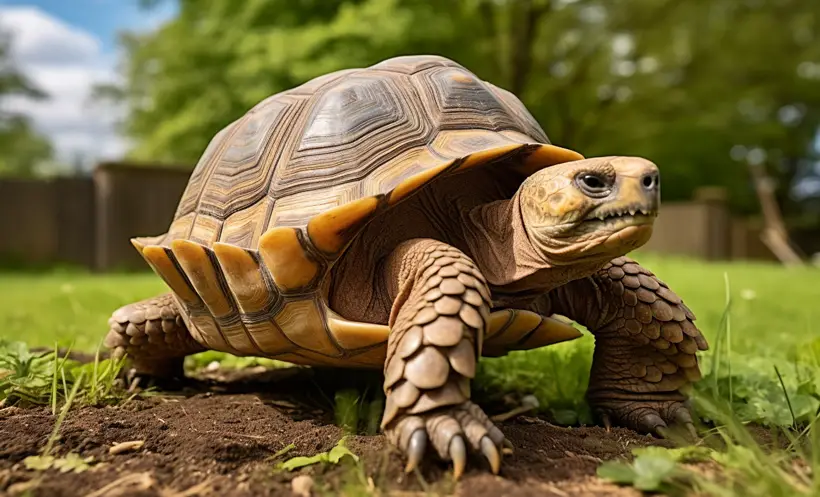
Behavioral Causes
Let’s look at some of the behavioral causes why your tortoise may not be eating.
Sleeping State and Hibernation
Some tortoises eat less during specific seasons or phases of their lives. Turtle Owner notes that hibernating tortoises will naturally eat less. But if your tortoise is awake and still not eating, further investigation is warranted.
Stress and Anxiety
Pets can get stressed, too! Any changes in routine, new pets, or even a noisy environment can lead to stress, which in turn impacts eating habits.
Dietary Issues
Lastly, let’s look at some dietary issues which should be the root of your problems.
Inappropriate Food Choices
Feeding your tortoise the wrong foods can make it a picky eater. Vary the diet to include appropriate greens and occasional fruits to keep meals interesting. For example, carrots, mustard seeds, kale, strawberries, etc.
Lack of Nutrients
A nutrient-deficient diet can lead to decreased appetite and malnourishment over time. Make sure you’re providing a balanced meal to your pet. High calcium, high fiber, low sugar, low fat, low protein, low phosphorus, and low oxalate are all good starting points for the tortoise’s diet.
To ensure that the tortoise receives all of the vitamins, minerals, and other nutrients it needs, it must be fed a varied diet of weeds and greens.
Why Monitoring Food Intake is Crucial for Tortoises?
Understanding and monitoring your tortoise’s food intake isn’t just about ensuring they have enough to eat. It’s a critical part of maintaining their overall health and well-being. Tortoises have unique dietary requirements, and their food intake is closely tied to multiple aspects of their physiology and lifestyle.
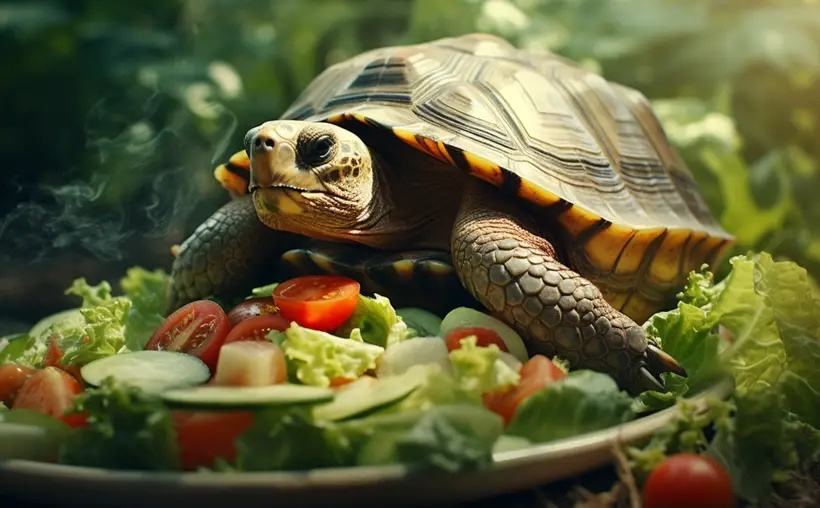
The Vital Role of Nutrition
Firstly, nutrition plays an indispensable role in a tortoise’s life. A balanced diet rich in nutrients like calcium and fiber is essential for robust shell development, proper growth, and general vitality.
Poor or inconsistent eating habits can lead to malnourishment, affecting growth and the immune system. This leaves your tortoise more susceptible to diseases, which can have severe, long-term consequences.
Health Indicators
Changes in eating patterns often serve as early indicators of potential health issues. A tortoise that abruptly stops eating or drastically reduces its food intake may signal the onset of a medical condition that needs immediate attention.
This could range from minor infections to more severe issues, such as organ dysfunction, as highlighted by Tortoise Knowledge.
Psychological Well-being
Lastly, food intake is also linked to your tortoise’s psychological well-being. Stress and discomfort can severely affect appetite. Monitoring food intake can provide clues about your pet’s stress levels, helping you make timely interventions to improve their environment or routine.
When to Consult a Veterinarian If Your Tortoise Stops Eating?
If you’ve tried all the above suggestions and haven’t seen any improvement, consult a veterinarian. Your tortoise might need more specialized care and medical tests to identify the root cause of its lack of appetite.
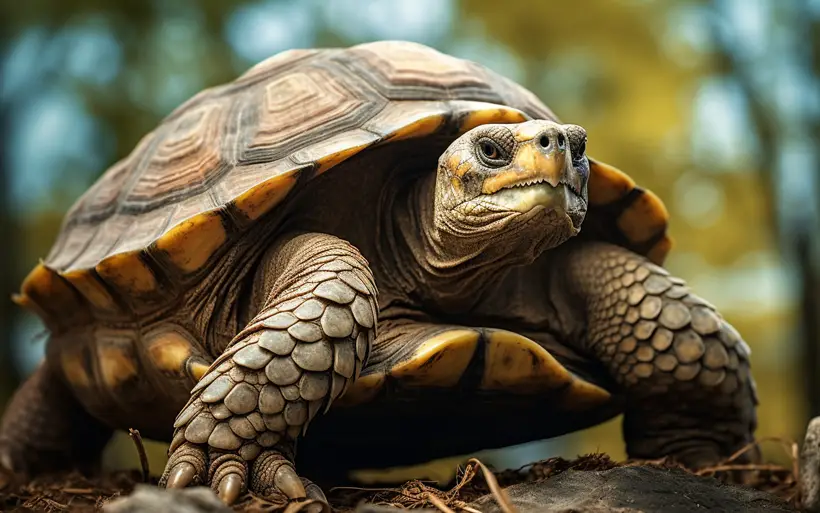
Observing Prolonged Refusal to Eat
From examining environmental factors, scrutinizing diet, and trying to minimize stress, you tried everything. Still, your tortoise is not showing interest in food. In this case, it is time for professional intervention
Unexplained Physical Symptoms
Alongside a persistent lack of appetite, your tortoise may show other symptoms. These may include lethargy, changes in fecal matter, or visible signs of distress. Then, it’s crucial to consult a veterinarian.
For Expert Medical Assessment
Veterinarians have the tools and expertise to perform necessary medical tests that could range from bloodwork to X-rays. These diagnostic tools can uncover underlying issues that aren’t apparent through casual observation.
Additionally, vets can prescribe medication or other treatments that you wouldn’t be able to administer yourself.
Preventive Measures to Loss of Appetite of Your Tortoise
So, how can we prevent the issues that cause tortoises to stop eating? From monitoring to planning, it may take a lot. Let’s dive in.
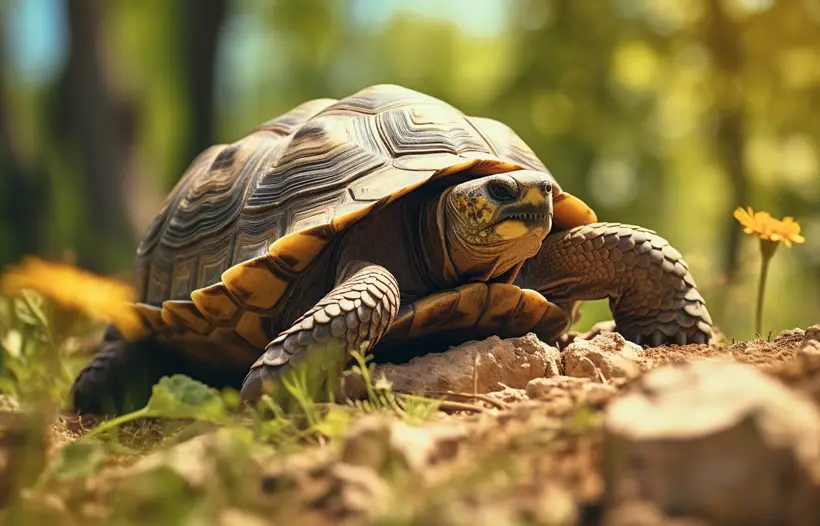
Regular Monitoring of Environmental Conditions
One of the first lines of defense in preventing appetite issues in tortoises is to maintain optimal living conditions. Use a thermometer and hygrometer to monitor the temperature and humidity levels in your pet’s enclosure.
Nutritional Planning
A balanced diet is crucial for any pet, and tortoises are no exception. Plan meals that are rich in essential nutrients like calcium, fiber, and vitamins. Avoid high-fat and sugary foods that can contribute to weight gain and lethargy, subsequently affecting appetite.
Routine Health Checks
Regular health checks can go a long way in preventing problems before they escalate. Look for signs like discoloration of the shell, changes in energy levels, or any visible distress.
Quick identification and treatment of minor health issues can prevent them from turning into severe problems that affect eating habits.
FAQs
Here are some frequently asked questions regarding why your tortoise has stopped eating.
Your tortoise may be attempting hibernation if she sleeps excessively and stops eating. When the days become shorter and the seasons change, tortoises slow down. Make sure she has enough lighting and heating by inspecting those systems.
You should be OK if you feed them on a somewhat consistent schedule. If a tortoise stops eating for more than a few days, it’s best to play it safe and take it to the vet to have it checked.
Conclusion
Understanding the reasons behind your tortoise not eating can be a complex issue, but it’s vital for their well-being. Pay attention to both environmental factors and possible medical issues, and consult a vet when in doubt.
With the right care and attention, you can help your tortoise get back to its old, munching self.

